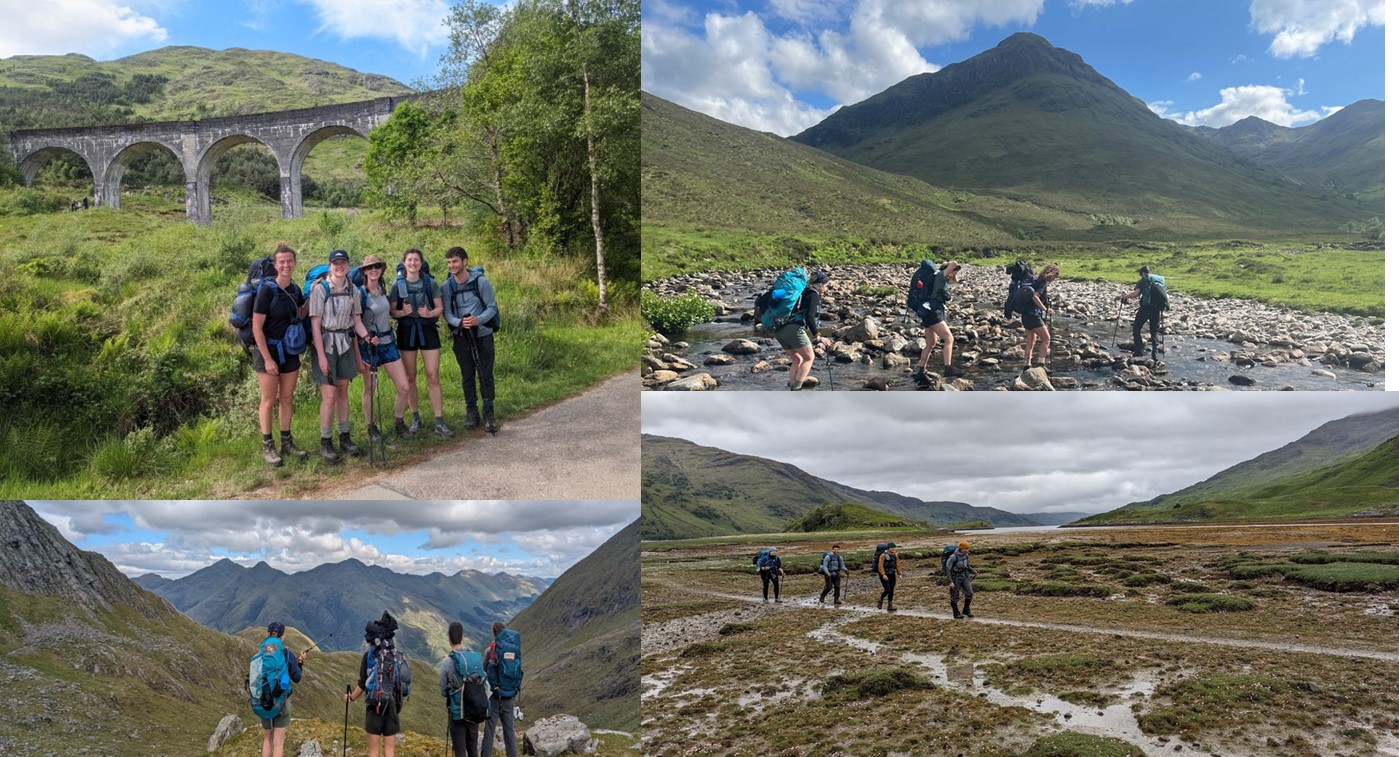About this Challenge Team
In May 2024, we completed a section of the Scottish Cape Wrath trail (notoriously one of the most challenging in the UK), without any single-use plastics, new kit, private or air travel, and on an entirely vegan diet. Conducting an expedition entirely sustainably is a major challenge, but we overcame it by borrowing equipment from other departments and students, buying second-hand when needed, and carefully planning their meals. This year was the trial expedition for this team, and it was a great success with many learnings, from teamwork in exhausting, remote locations, dealing with medical problems in the field (sore, wet, feet!), planning high calorie, but compact food from vegan and zero waste sources (a surprisingly big challenge). Next year we aim to grow the expedition team into the citizen science sector, and focus more on aiding a specific project that needs field assistance while maintaining the sustainability aspect as much as possible. contributing to scientific projects in the area while raising funds for climate charities.
Nell Pates, one of the team members, wrote a Grantham blog on the experience; If you’d like to learn more about all the fun we had up in Scotland, we made a website that has photos and some of our blogs.

Team Members
Javier Sánchez Fernández (Cohort 9)
Joseph Ovwemuvwose (Cohort 9)
Kaya Jumbe (Cohort 10)
Louis Cohen (Cohort 10)
Martha Day (Cohort 10)
Nell Pates (Cohort 10)
Rhys Preston-Allen (Cohort 10)
Rose Gooda (Cohort 10)
Samantha Jenkins (Cohort 10)